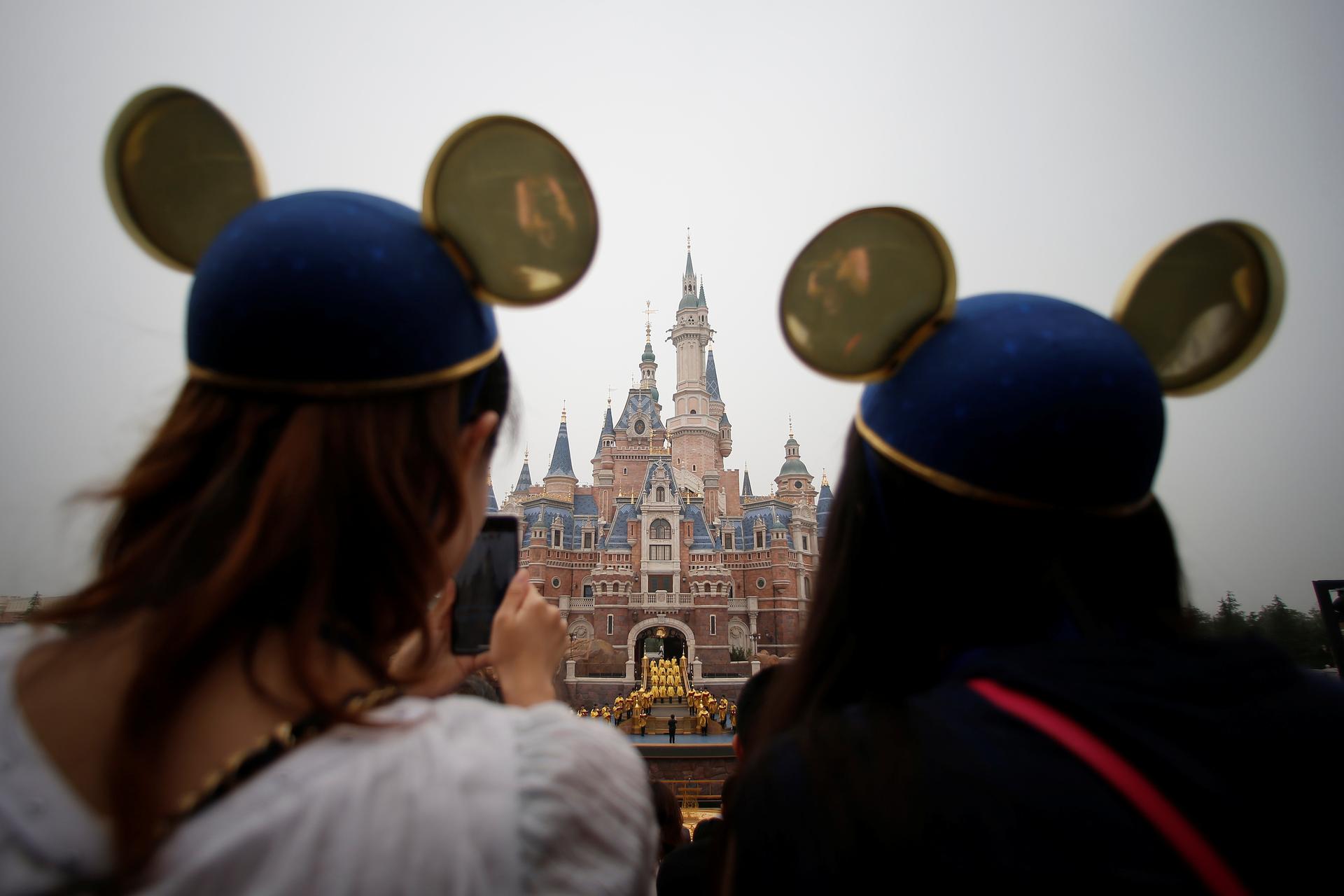Women wearing Mickey Mouse ears watch the opening ceremony at Shanghai Disney Resort in Shanghai, China, June 16, 2016.
There’s a magical castle. Mickey Mouse is smiling. The lines are long, and the food is expensive.
It can only be Disneyland.
But this time … it’s Communist Party approved.
Seventeen years after the idea was first raised, Disney has finally opened its first amusement park in mainland China, on the outskirts of Shanghai.
The target market is the 330 million people living within a three-hour drive along China's central eastern seaboard.
By all accounts, the lucky few who visited on the first day had a great time. But the opening of the new park is more than just fun and games. It's something of a diplomatic event.
At the opening ceremony, Disney Chairman and CEO Bob Iger read a letter from President Barack Obama, who said the park “captures the promise” of the bilateral relationship between the US and China.
And China’s president, Xi Jinping, said that the new park was a sign of his country’s “commitment to cross-cultural cooperation.”
On the face of it, Disney seems happy to go along with this idea. The slogan of the new theme park is "authentically Disney and distinctly Chinese."
But according to Jonathan Kaiman, Asia correspondent with the Los Angeles Times, the slogan also suggests a degree of deference on Disney’s part.
A company controlled by the Chinese government owns a 57 percent stake in the new resort, and there are suggestions that some decisions about park operations have been made by the state.
“I think it’s a gesture to the Chinese government, the officials they are working with, and also the clientele that they are bringing in, who are very much influenced by this political system,” Kaiman says.
“[They are] wary of what they see as Western values and ideals, and cultural imperialism.”
“Disney, in the run up to this opening," Kaiman adds, "has made it very clear that they are willing to make concessions. They are willing to let the government call the shots. They see themselves as an equal or even a lesser partner in this whole operation.”
China's power to dictate terms to an iconic and wealthy American company like Disney could be seen as yet another sign of the country's growing global influence.
“Walt Disney himself died in 1966, during the first year of the cultural revolution,” Kaiman says. “So much has changed since then.”
“China has really emerged as a major player on the world stage, and the government wants to send a message that they have arrived.”
“Their door is open to the rest of the world, even if they are only willing to play by their own rules.”
The World is an independent newsroom. We’re not funded by billionaires; instead, we rely on readers and listeners like you. As a listener, you’re a crucial part of our team and our global community. Your support is vital to running our nonprofit newsroom, and we can’t do this work without you. Will you support The World with a gift today? Donations made between now and Dec. 31 will be matched 1:1. Thanks for investing in our work!
